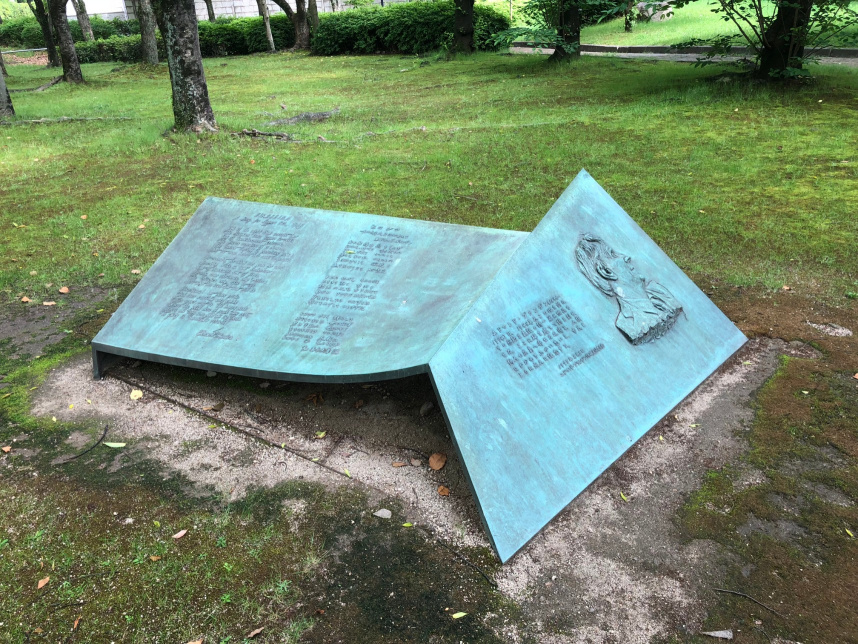 Commentary from Japan Tourism Agency
Commentary from Japan Tourism AgencyMonument to Edmund Blunden
Table of Contents

Edmund Blunden (1896–1974), a British poet and pacifist with deep connections to Japan, is memorialized here with a bronze sculpture in the shape of an overturned book. During World War I, Blunden served in the British Army for two years. His experience of the horrors of war on battlefields such as the Somme, in northern France, informed his later writings and led him to develop a committed anti-war stance. After the war, Blunden studied at the University of Oxford, and over the course of his career was nominated six times for the Nobel Prize for Literature.
Blunden first traveled to Japan in 1924 to serve as a professor of English Literature at Tokyo Imperial University (now the University of Tokyo). He arrived again in 1947, as a member of the British liaison mission in Tokyo, and the country began to figure as a subject in his verse. In 1948, he visited Hiroshima to give a lecture on Shakespeare at what is now Hiroshima University, and the following year he published a poem titled “A Song for August 6, 1949.”
This poem was rediscovered in 1975 by Masui Michio, former Dean of the Faculty of Letters at Hiroshima University, and with the support of the Japan-British Society, the Edmund Blunden Memorial was built. Located just north of the Hiroshima City Central Library, the memorial is inscribed with “A Song for August 6, 1949,” in both the original English and a Japanese translation.